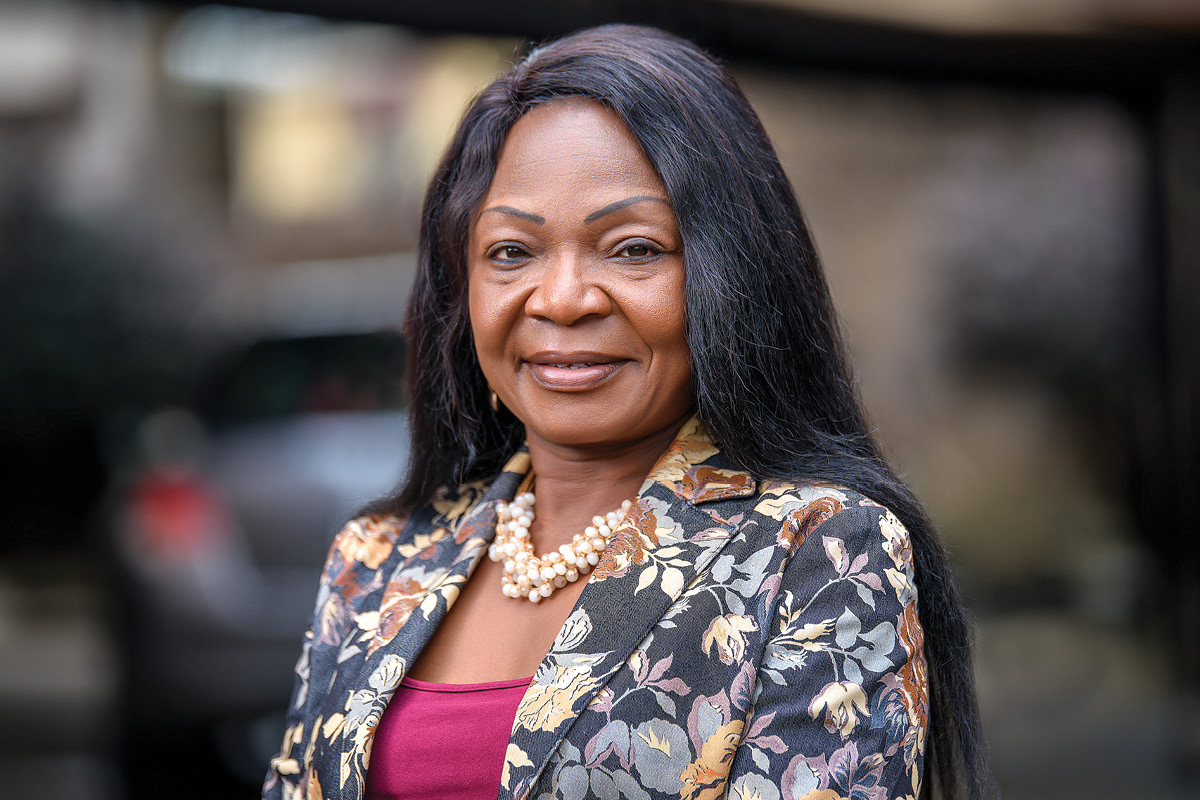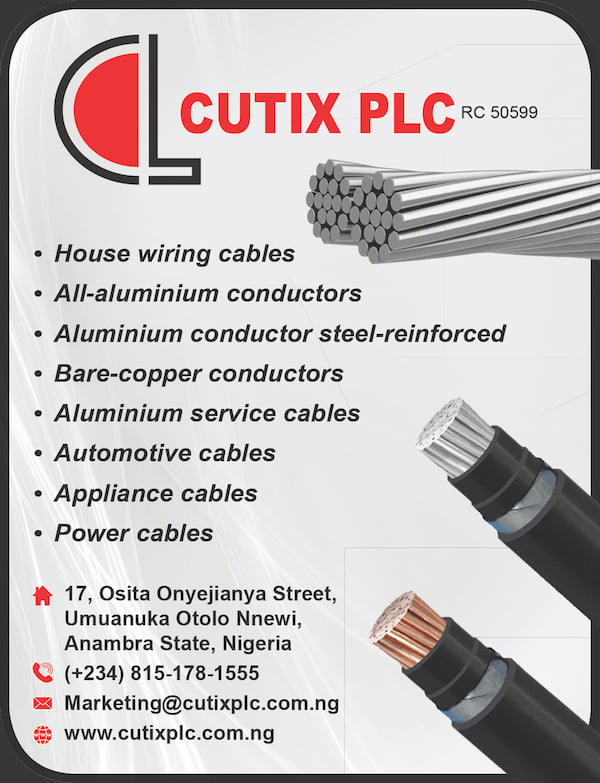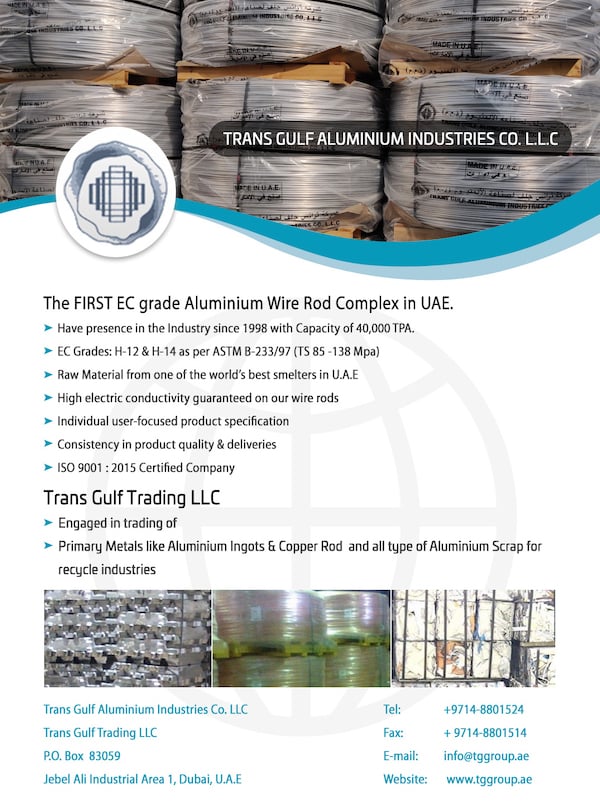If there’s one thing Ijeoma Oduonye doesn’t believe in, it’s taking shortcuts. It’s evident from her 28-year-long career at Nigerian electrical cable manufacturer Cutix PLC. Joining the firm in 1992 as Personal Assistant to the founder, and then head of the Administration Department.

Her patience, loyalty and years of accumulated experience working closely with the management was finally given recognition when, in 2018, she acceded to the role of CEO.
But other than a better office and a bigger title, not much has changed for Ijeoma. She still doesn’t believe in shortcuts and wants this principle to come through clearly in everything Cutix PLC puts out.
“The biggest strength of the company is the quality of our products,” she says proudly. “We have zero tolerance for low-performance cables and we have resolved to uphold the quality we have against all odds.”
“We have zero tolerance for low-performance cables and we have resolved to uphold the quality we have against all odds.”
This has become particularly important in recent years as the Nigerian market has struggled to battle cheap imports and counterfeits. “When presented with two different types of cables at two pricepoints, unsuspecting buyers often believe that they are comparing apples to apples. The quality difference is not always obvious,” Ijeoma explains. “In actual fact, they are comparing apples to oranges.”
Cutix PLC has stringent quality parameters for its products that go above and beyond what the safety rules require. Ijeoma shares an example: “We do not compromise on the size of our conductors. We always make sure our customers get the right conductor for the size of cables they purchased. Otherwise, they may risk their buildings going up in flames.”
That’s not all. The firm has even gone to the extent of manufacturing its own PVC compounds to use for insulation. “We don’t depend on external suppliers because we want to be sure of the quality.”
Even the invisible little details are not spared. Cables sold in 100-metre coils are always cut to 100.5 metres to “ensure the customers never get less than what they ordered”.
The purity of the copper or aluminium used in the cables is always 99.9%, which does the firm no favours in terms of cost savings but is critical in ensuring the safety and longevity of the products.

Behind such quality is 100% Nigerian roots – both in the company’s workforce and its production process, which the business takes a lot of pride in.
Incorporated in 1982, Cutix PLC was founded by Dr Ajulu Uzodike, who aspired to create a company that was capable of fully localising the manufacturing of electrical wires and cables. It began with a single extrusion line in 1984.
A second was added in 1985, and by 1986 the firm had multiple processing lines and boasted productivity that rivalled the global leaders in cable manufacturing.
From its humble beginnings in a 1,000-square-metre rented facility, Cutix PLC now has a head office that sits adjacent to a production site spanning 6,000 square metres. It also has a 5,500-square-metre power-cable plant, which it acquired in 2014, and sales offices in eight locations around Nigeria.
“Our vision is to become one of the top three providers of electrical products and services in the world, and our mission is to power and illuminate the world,” Ijeoma shares.
The firm’s scale and its scope of production may have increased greatly, but it remains committed to keeping its workforce fully local. Far from an exclusionary policy, Ijeoma explains that this was implemented simply to ensure that “the expertise and knowledge the company has accumulated over the years are never lost”.
Key to passing on this know-how is communication. “I believe that communication is an important aspect of running a company,” she says.
“It’s important to always communicate to the employees where the company wants to be and ask them for ideas on how we can take it there. I enjoy it when staff share their ideas because it makes them feel more relevant and gets them committed to the common course of the company. The CEO should not be the only one talking at all times.”
To Ijeoma, the current challenges faced by the country’s medical industry illustrates the exact conundrum she wishes to steer Cutix PLC clear of. The country used to depend on doctors from India, many of whom have now moved back to their home country. This has resulted in a trend of Nigerians going overseas for medical treatments in India and other countries for fear of not getting required treatment locally.
“We need to ensure that the strength and capabilities we have at Cutix PLC are not borrowed and that we build our success with our own hands,” she insists. “This is the only way we can ensure that our quality remains unchanged through the years.”
Ijeoma believes that to prevent cheap imports from further undercutting trustworthy players like Cutix PLC and to stop unsafe products that may be fire hazards from flooding the market, the Nigerian authorities need to step in.
“The industry needs some protection from the government. They need to make sure that all products sold in the market meet safety requirements. Only then is there an equal playing ground for all firms.”
And while Cutix PLC’s products may not be the most competitive price-wise, she is confident that the firm will retain its loyal customers. “Quality comes at a premium and I know that there are people out there who are willing to pay for quality.”
Proudly supported by:




